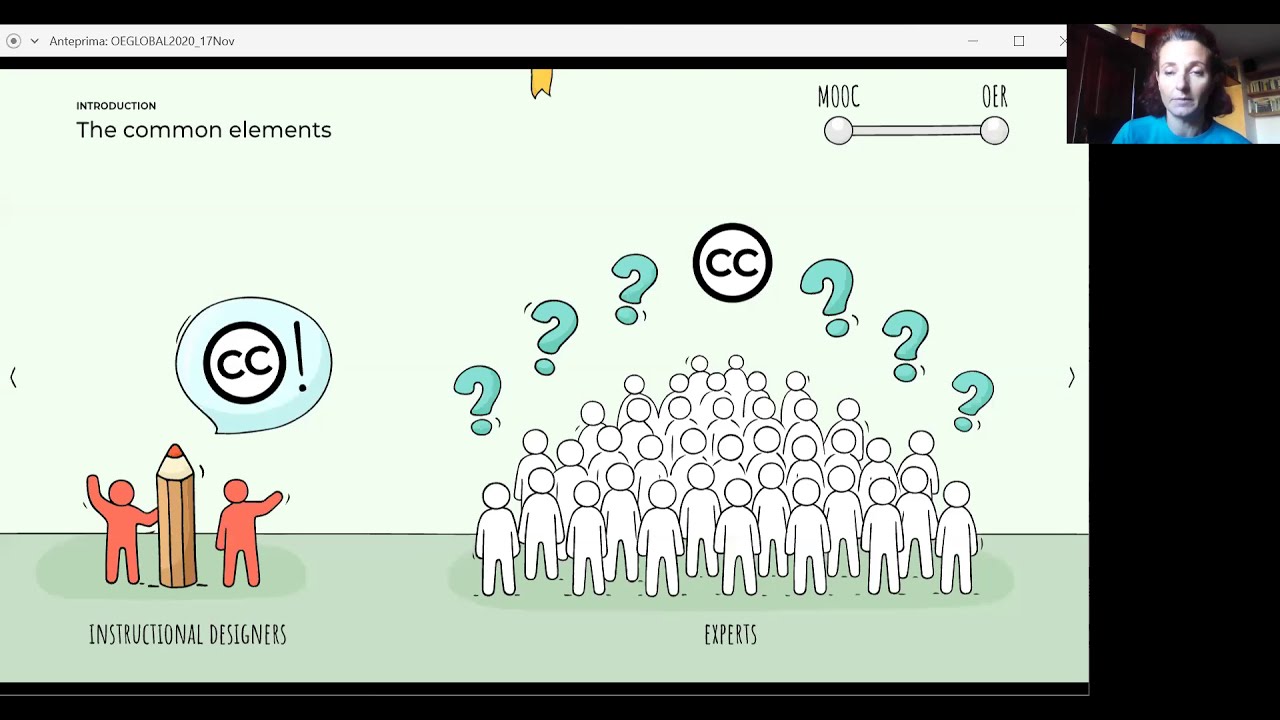Authors: Francesca Concia, Paola Corti
Institution: METID - POLITECNICO DI MILANO
Country: Italy
Topic: Innovation through MOOCs practices
Sector: Higher Education
UNESCO Area of Focus: Developing supportive policy
Session Format: Lightning Talk
Abstract
In this session we will share our experience with two multi-experts MOOCs who were designed during 2019 in a copyright protected way or with narrow license: “Higher Education for Sustainable Development Goals”, which aims at enhancing citizens’ awareness about sustainability issues, discovering the richness and interdisciplinary connections that can be established among several topics through practical examples of projects, and “Essential radiochemistry for society”, addresses to Bachelor students, interested in becoming conscious of the involvement of Nuclear Radiochemistry in everyday life and understanding the advantages it could safely introduce. Both MOOCs were considered to be moved to open license, after an advocacy work done by the instructional designers. The comparison among the MOOCs represents an interesting case study because of the challenge they have represented - due to some foreseen obstacles and some absolutely unpredictable barriers - but also for the strategies the instructional designers adopted, and the solutions they implemented: among them are worthy to be named patience and respect. The co-design approach, experienced by both content experts and instructional designers, is at the basis of this change in perspective about opening up contents: spending time together, chatting in formal and informal ways around the theme, providing relevant examples of previous successful experiences. All these elements worked in order to make the change. There are many differences between these MOOCs: their general purpose, their scientific fields, the initial requirements, the targeted final users and also the experts' approach. It is interesting to observe the elements these two MOOCs have in common: - the numerosity of experts coming from different universities, who didn’t even consider these MOOCs a priority in their working flow; - basic or no knowledge about open licensing on content experts’ side; - instructional designers focused on advocating about open, but not in a pushy way; - an unforeseen long window for MOOC design and implementation (not advisable on the project management side, but really useful to make time for considering open as a chance); - same design and production period; - finally, the fact that both MOOCs moved from being copyright protected or narrowly open licensed toward a more open approach, thanks to the advocacy work done by the instructional designers. This experience might benefit open license advocates who are struggling with experts who are reluctant in opening their educational materials to make them available for 5Rs purposes. Consistently with the OER RECOMMENDATION, these experiences are developing supportive policy because they show how a design and implementation team can directly contribute in developing bottom-up strategies to disseminate about open and support in implementing licenses even in contexts which are not familiar nor particularly interested in open education, at the beginning.Keywords
Opening MOOCs, Open with respect, Open with patience, Open through co-design
 See you on Tuesday 17 November!
See you on Tuesday 17 November!
